Related Research Articles

The cinema of the Soviet Union includes films produced by the constituent republics of the Soviet Union reflecting elements of their pre-Soviet culture, language and history, albeit they were all regulated by the central government in Moscow. Most prolific in their republican films, after the Russian Soviet Federative Socialist Republic, were Armenia, Azerbaijan, Georgia, Ukraine, and, to a lesser degree, Lithuania, Belarus and Moldavia. At the same time, the nation's film industry, which was fully nationalized throughout most of the country's history, was guided by philosophies and laws propounded by the monopoly Soviet Communist Party which introduced a new view on the cinema, socialist realism, which was different from the one before or after the existence of the Soviet Union.
A drug cartel is a criminal organization composed of independent drug lords who collude with each other in order to improve their profits and dominate the illegal drug trade. Drug cartels form with the purpose of controlling the supply of the illegal drug trade and maintaining prices at a high level. The formations of drug cartels are common in Latin American countries. Rivalries between multiple drug cartels cause them to wage turf wars against each other.
A gangster is a criminal who is a member of a gang. Most gangs are considered to be part of organized crime. Gangsters are also called mobsters, a term derived from mob and the suffix -ster. Gangs provide a level of organization and resources that support much larger and more complex criminal transactions than an individual criminal could achieve. Gangsters have been active for many years in countries around the world. Gangsters are the subject of many novels, films, television series, and video games.
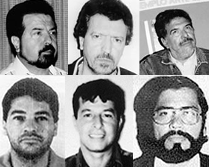
The Cali Cartel was a drug cartel based in southern Colombia, around the city of Cali and the Valle del Cauca. Its founders were the brothers Gilberto Rodríguez Orejuela, Miguel Rodríguez Orejuela and José Santacruz Londoño. They broke away from Pablo Escobar and his Medellín associates in 1988, when Hélmer "Pacho" Herrera joined what became a four-man executive board that ran the cartel.
The Russian mafia, otherwise referred to as bratva, is a collective of various organized crime related elements originating in the former Soviet Union (FSU). Any of the mafia's groups may be referred to as an "Organized Criminal Group". This is sometimes modified to include a specific name, such as the Orekhovskaya OPG. Sometimes, the Russian word is dropped in favour of a full translation, and OCG is used instead of OPG.
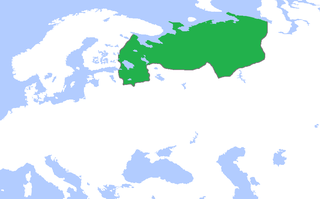
The Novgorod Republic was a medieval state that existed from the 12th to 15th centuries in northern Russia, stretching from the Gulf of Finland in the west to the northern Ural Mountains in the east. Its capital was the city of Novgorod. The republic prospered as the easternmost trading post of the Hanseatic League, and its people were much influenced by the culture of the Byzantines, with the Novgorod school of icon painting producing many fine works.

Sherilyn Fenn is an American actress. She played Audrey Horne on the television series Twin Peaks for which she was nominated for a Golden Globe Award and an Emmy Award.
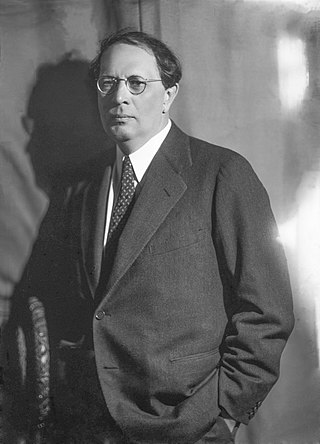
Aleksey Nikolayevich Tolstoy was a Russian writer whose works span across many genres, but mainly belonged to science fiction and historical fiction.

Grand Duke Sergei Alexandrovich of Russia was the fifth son and seventh child of Emperor Alexander II of Russia. He was an influential figure during the reigns of his brother Emperor Alexander III of Russia and his nephew Emperor Nicholas II, who was also his brother-in-law through Sergei's marriage to Elisabeth, the sister of Empress Alexandra.
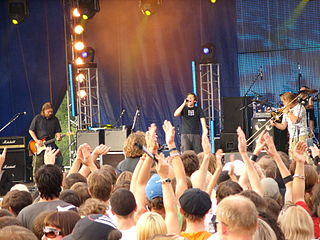
Nogu Svelo! is a contemporary Russian rock band. The group was founded by Maxim Pokrovsky, the only consistent member and author of nearly all of the band's work.
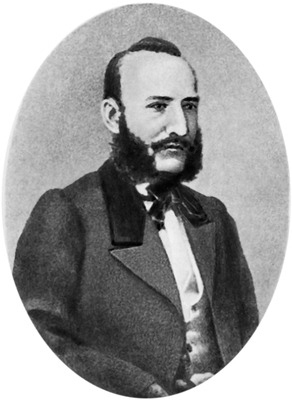
Alexander Nikolayevich Afanasyev was a Russian Slavist and ethnographer best known for publishing nearly 600 East Slavic and Russian fairy and folk tales, one of the largest collections of folklore in the world. This collection was not restricted to Great Russia, but included folk tales from what are now Ukraine and Belarus as well. The first edition of his collection was published in eight volumes from 1855 to 1867, earning him the reputation of being the Russian counterpart to the Brothers Grimm.

Emanuele Filiberto Umberto Reza Ciro René Maria di Savoia is a member of the House of Savoy. He is the son of Vittorio Emanuele of Savoy and only male-line grandson of Umberto II, the last King of Italy. In 2024, Emanuele Filiberto became one of two claimants to the headship of the House of Savoy after the death of his father.

The situation with the spread of HIV/AIDS in Russia is described by some researchers as an epidemic. The first cases of human immunodeficiency virus infection were recorded in the USSR in 1985-1987. Patient zero is officially considered to be a military interpreter who worked in Tanzania in the early 1980s and was infected by a local man during sexual contact. After 1988—1989 Elista HIV outbreak, the disease became known to the general public and the first AIDS centers were established. In 1995-1996, the virus spread among injecting drug users (IDUs) and soon expanded throughout the country. By 2006, HIV had spread beyond the vulnerable IDU group, endangering their heterosexual partners and potentially the entire population.
The original historic Knights Templar were a Christian military order, the Order of the Poor Fellow Soldiers of Christ and of the Temple of Solomon, that existed from the 12th to 14th centuries to provide warriors in the Crusades. These men were famous in the high and late Middle Ages, but the Order was disbanded very suddenly by King Philip IV of France, who took action against the Templars in order to avoid repaying his own financial debts. He accused them of heresy, ordered the arrest of all Templars within his realm, put the Order under trial and many of them burned at the stake. The dramatic and rapid end of the Order led to many stories and legends developing about them over the following centuries. The Order and its members increasingly appear in modern fiction, though most of these references portray the medieval organization inaccurately.

Wissotzky Tea is an international, family-owned tea company based in Israel with offices in London and the United States. It is the leading tea distributor in Israel. Founded in 1849 in Moscow, Russia, it became the largest tea firm in the Russian Empire. By the early 20th century, it was the largest tea manufacturer in the world. It is one of the oldest tea companies in the world.
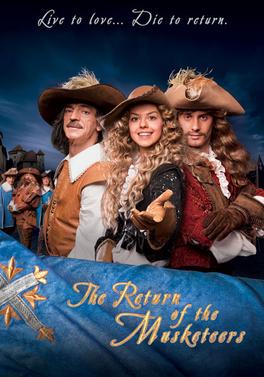
The Return of the Musketeers, or The Treasures of Cardinal Mazarin is a 2009 Russian musical comedy film directed by Georgi Yungvald-Khilkevich.
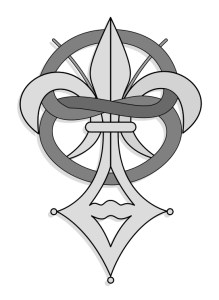
The Prieuré de Sion, translated as Priory of Sion, was a fraternal organisation founded in France and dissolved in 1956 by Pierre Plantard in his failed attempt to create a prestigious neo-chivalric order. In the 1960s, Plantard began claiming that his self-styled order was the latest front for a secret society founded by crusading knight Godfrey of Bouillon, on Mount Zion in the Kingdom of Jerusalem in 1099, under the guise of the historical monastic order of the Abbey of Our Lady of Mount Zion. As a framework for his grandiose assertion of being both the Great Monarch prophesied by Nostradamus and a Merovingian pretender, Plantard further claimed the Priory of Sion was engaged in a centuries-long benevolent conspiracy to install a secret bloodline of the Merovingian dynasty on the thrones of France and the rest of Europe. To Plantard's surprise, all of his claims were fused with the notion of a Jesus bloodline and popularised by the authors of the 1982 speculative nonfiction book The Holy Blood and the Holy Grail, whose conclusions would later be borrowed by Dan Brown for his 2003 mystery thriller novel The Da Vinci Code.

Viktor Alexandrovich Verzhbitsky is an Uzbekistani-Russian film and stage actor. He is well known for playing mobsters, businessmen, and villains and he is well known for playing the role of Zavulon in the 2004 film Night Watch and its 2006 sequel Day Watch.
In politics, a mafia state is a state system where the government is tied with organized crime to the degree when government officials, the police, and/or military became a part of the criminal enterprise. According to US diplomats, the expression "mafia state" was coined by Alexander Litvinenko.

The Base is a white supremacist and neo-Nazi accelerationist paramilitary group and training network, formed in 2018 by Rinaldo Nazzaro. It is active in the United States, Canada, Australia, South Africa, and Europe, and designated as a terrorist organization in Canada, the United Kingdom, Australia, New Zealand, and the European Union.